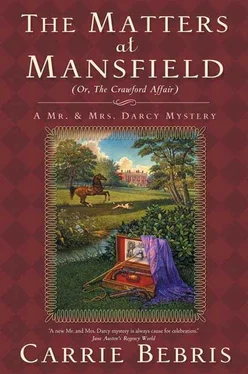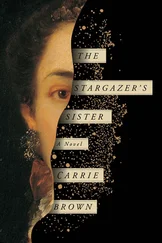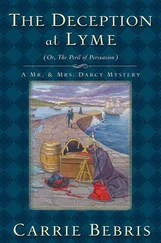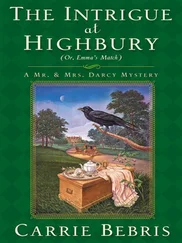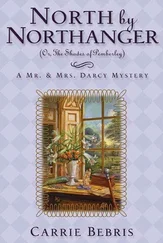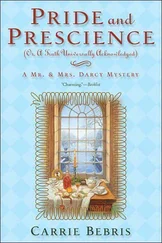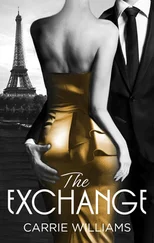“Don’t recollect, sir.” The boy finished grooming and moved to another part of the stable.
Colonel Fitzwilliam reached out to stroke the hunter’s nose, but the mare shied from his hand. “A noble animal scarred by circumstance,” he said. “Does Mr. Crawford spoil everything he touches? I wonder how she came by her injury.”
“Anne says Mr. Crawford recently acquired the Thoroughbred from Mr. Sennex as payment for a debt.”
“The mare belonged to Neville Sennex? Do not tell me so, for that means I must now consider the horse better off in Mr. Crawford’s care, which I find difficult to believe of any feeling creature.”
“Including Anne?”
“Especially Anne.” Colonel Fitzwilliam shook his head. “What cruel fortune, to escape marriage to a man who is constantly brutal only to wed one who is brutally inconstant. She deserves a happier fate than either Mr. Sennex or Mr. Crawford could ever give her.”
“I do not know how she will find one now. Her legal mire is thicker than the mud on my boots.”
“Crawford’s death would clean up matters quite a bit.”
Despite the warm, humid air congesting the stable, the colonel’s words chilled Darcy. His cousin was no coward, but he was also no hothead. He had entered the army out of necessity — as a second son, unlikely to inherit unless misfortune struck his elder brother, he had needed a profession, and in his youth had been drawn to the military because it appeared to offer a more stimulating life than would the church or the law. In his years of service he had seen his share of battles and acquitted himself well, earning a reputation as a strong commander undaunted in combat. But his had always been an impersonal aggression, directed at a faceless, collective enemy. Until Henry Crawford crossed his path.
“You expressed a similar sentiment last night,” Darcy observed.
“Ease your mind — I have not acted upon it. I merely state a fact: Anne would be far better off with Crawford dead than missing. She would be free to marry whomever she wished while the courts sort out whether her first marriage was valid or not.”
“Even could she — or her mother — find a man who is interested, I cannot imagine Anne herself wishes to wed anyone at present. Hymen has not treated her well thus far.”
“She may yet find happiness. But before that can happen, we must ascertain Mr. Crawford’s fate. Did he abandon his mount voluntarily, or did an accident befall him?”
Darcy had been pondering that very question. “She is a distinctive horse. Mr. Crawford himself presents an average appearance that would not excite notice among strangers, but the animal’s scar draws attention and would linger in the memory of anyone he encounters. He might have parted with her in order to travel more inconspicuously. That would help explain why we were all unsuccessful in locating him during our search yesterday evening.”
“Surely if he chose to set the mare loose, he did so near a place where he could hire another mount or board a coach. Is there anything distinctive about her shoes? Perhaps we can trace the hoofprints to determine where she became separated from Mr. Crawford.”
An enormous crack of thunder satisfied that query. Even if they could have discerned Charleybane’s marks from all the others on the road, rain had obliterated them by now. As if to reinforce the point, the shower intensified.
They could not seek Henry Crawford today. The only question remaining was whether they would ever locate him at all.
Henry Crawford, ruined by early independence and bad domestic example, indulged in the freaks of a cold-blooded vanity a little too long.
—
Mansfield Park
Darcy turned his head away from the appalling spectacle, grateful that he had come alone despite Elizabeth’s offer to accompany him. The servant who had summoned him upon the unfortunate discovery had communicated few details, but something in his manner had forewarned Darcy that the true news lay in what had gone unsaid.
Sir Thomas Bertram muttered something resembling condolences. “You can imagine how surprised I was to learn that Mr. Crawford had been found on my own grounds,” he added. “We were still more shocked by his condition. I am sorry to have summoned you so early, but you can see why I do not want him left any longer in his present state.”
Sir Thomas’s servant had escorted Darcy through the woods of Mansfield Park to a small clearing some distance from the road. It was Darcy’s second meeting with Sir Thomas, the first having occurred when the family reported Mr. Crawford’s disappearance following the return of his horse. The coroner, a gentleman Sir Thomas had introduced as “my old friend Mr. Stover,” was also present, as was Sir Thomas’s gamekeeper, who had first come upon the body.
Darcy fought down the bile rising in his throat. As unconscionable as Mr. Crawford’s transgressions had been in life, no person deserved to endure such degradation in death as to be reduced to an inhuman mound of torn flesh. Rain had washed away most of the blood, but the body was in an advanced state of decomposition, and prolonged exposure to hungry wildlife and hot, humid weather had rendered what was left of him, particularly his countenance, unrecognizable. Were it not for the dark hair and general build of the remains, Darcy could not have believed it possible that this was a man he knew, let alone had spoken to less than a se’nnight previous. “Are you certain it is Mr. Crawford?”
“That is what we hope you will confirm,” said Mr. Stover.
“We identified him by these.” Sir Thomas produced a silver snuffbox engraved with the initials H.C . and the pair of earrings his daughter Maria had deposited at Henry’s feet. “They were in his coat.”
Darcy pitied whichever of the men had gotten close enough to the corpse to retrieve Henry’s effects. The coat, along with much of Mr. Crawford’s other moldering clothing, clung to his damaged body in shreds. The stench was beyond rank, made worse by the fact that the corpse lay in the full sun, just outside what limited shade might have been offered by a nearby cluster of birch trees.
“I saw him pocket those ear-bobs the day he disappeared,” Darcy said. “I am afraid this is indeed Henry Crawford.” He turned to the gamekeeper. “What sort of animal attacked him?”
The gamekeeper shook his head. “We have no large predators around here. He was dead before the scavengers got to him.”
“What killed him, then?”
“That.” The coroner pointed to Mr. Crawford’s left side. As Darcy stood on the opposite side of the corpse, he had to move to obtain a proper view.
A pistol lay in the grass.
“If you observe the area around what used to be his mouth, you can see black powder burns.” Mr. Stover leaned forward and waved away flies to grant a better view. “The shot came from extremely close range.”
Darcy would have been content to take his word on the matter, but he looked out of courtesy. There were indeed burns and powder embedded in a vague circle around the mouth, almost like the tattoos one sometimes saw on sailors. The rest of Mr. Crawford’s flesh was so discolored and darkened that he had not noticed the burns before — not that he had allowed his gaze to rest on Mr. Crawford’s face all that long. “Someone shot him in the mouth?”
“Not just any someone.” Mr. Stover exchanged an uneasy glance with Sir Thomas. “I believe we have another Young Werther here.”
If the sight and smell of Henry Crawford’s corpse had not been enough to turn Darcy’s stomach, the coroner’s pronouncement was. Darcy had read The Sorrows of Young Werther years ago — every one of his schoolfellows had, on the sly. Banned in some countries, the book had been blamed for a spate of imitative deaths.
Читать дальше
